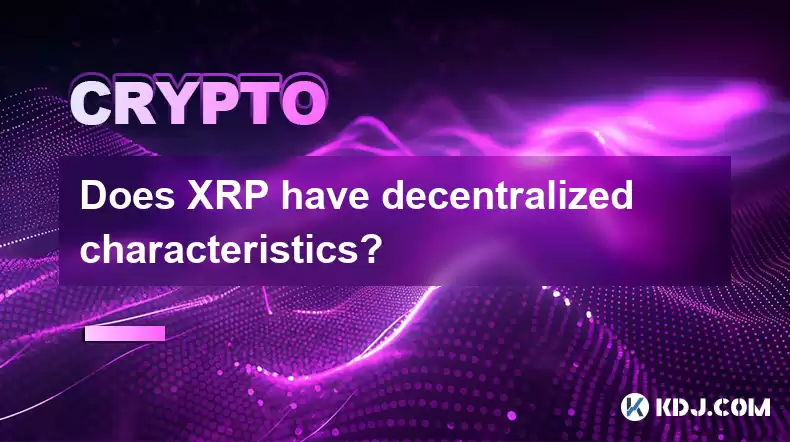-
 Bitcoin
Bitcoin $120300
1.41% -
 Ethereum
Ethereum $4296
2.75% -
 XRP
XRP $3.220
1.46% -
 Tether USDt
Tether USDt $0.9997
-0.04% -
 BNB
BNB $801.6
0.14% -
 Solana
Solana $179.9
0.22% -
 USDC
USDC $0.9998
-0.01% -
 Dogecoin
Dogecoin $0.2302
-0.24% -
 TRON
TRON $0.3405
-0.39% -
 Cardano
Cardano $0.7965
0.53% -
 Hyperliquid
Hyperliquid $44.80
2.57% -
 Chainlink
Chainlink $21.95
2.94% -
 Stellar
Stellar $0.4438
1.68% -
 Sui
Sui $3.767
-1.42% -
 Bitcoin Cash
Bitcoin Cash $584.4
3.24% -
 Hedera
Hedera $0.2554
-0.59% -
 Ethena USDe
Ethena USDe $1.001
-0.02% -
 Avalanche
Avalanche $23.57
0.00% -
 Litecoin
Litecoin $126.6
4.64% -
 Toncoin
Toncoin $3.339
0.94% -
 UNUS SED LEO
UNUS SED LEO $9.001
-0.49% -
 Shiba Inu
Shiba Inu $0.00001320
-0.92% -
 Uniswap
Uniswap $10.84
3.36% -
 Polkadot
Polkadot $3.945
-1.39% -
 Cronos
Cronos $0.1663
4.77% -
 Ethena
Ethena $0.8136
8.48% -
 Dai
Dai $0.0000
0.00% -
 Bitget Token
Bitget Token $4.391
-0.51% -
 Monero
Monero $268.0
0.80% -
 Pepe
Pepe $0.00001169
-1.57%
Does XRP have decentralized characteristics?
XRP's decentralization is debated; Ripple's substantial XRP holdings grant significant network influence, contrasting with the decentralized ethos of Bitcoin and Ethereum. The XRP Ledger's consensus mechanism, while distributed, faces scrutiny regarding validator independence and transparency.
Mar 13, 2025 at 12:00 am

Key Points:
- XRP's decentralization is a complex and debated topic within the crypto community.
- Ripple Labs, the company behind XRP, holds a significant portion of XRP, influencing network control.
- The XRP Ledger's consensus mechanism, while distributed, differs significantly from purely decentralized systems like Bitcoin.
- Validators on the XRP Ledger are not necessarily fully independent or distributed globally.
- The degree of XRP's decentralization is a matter of ongoing discussion and analysis.
Does XRP Have Decentralized Characteristics?
The question of XRP's decentralization is a nuanced one, sparking considerable debate within the cryptocurrency community. While the XRP Ledger, the technology underpinning XRP, employs a distributed consensus mechanism, its degree of decentralization is significantly less than many other cryptocurrencies often cited as decentralized. Understanding this requires examining several key aspects of the system.
One major point of contention revolves around Ripple Labs' significant ownership of XRP. This large holding gives Ripple considerable influence over the network's operations and potentially the direction of the cryptocurrency itself. This centralized control contrasts sharply with the decentralized ethos of many other cryptocurrencies where no single entity holds such a dominant position.
The XRP Ledger utilizes a unique consensus mechanism known as the "RPCA" (Ripple Protocol Consensus Algorithm). Unlike Proof-of-Work (PoW) or Proof-of-Stake (PoS) consensus mechanisms, RPCA relies on a network of validators to confirm transactions. However, the selection and distribution of these validators are not fully transparent or distributed in the same manner as other decentralized networks.
While the validators are geographically dispersed, the level of independence amongst them is a point of contention. The possibility of collusion or undue influence by certain validators, or even Ripple itself, remains a concern for those who question the network's true decentralization. This is a crucial distinction, as true decentralization ideally means no single entity or group can control or manipulate the network.
The process of becoming a validator on the XRP Ledger is not entirely open and accessible to everyone. Specific requirements and criteria may favor certain participants, potentially leading to a less diverse and potentially less decentralized validator network. This contrasts with some PoS systems where participation is more readily accessible.
Furthermore, the architecture of the XRP Ledger allows for upgrades and modifications to be implemented, raising concerns about potential centralization. The ability to make changes to the core protocol without complete community consensus could potentially lead to a more centralized system over time.
The Role of Ripple Labs
Ripple Labs' involvement in the XRP ecosystem is central to the decentralization debate. Their significant ownership of XRP, their influence over the validator network, and their role in developing and maintaining the XRP Ledger all contribute to concerns about centralized control. The lack of complete transparency in some aspects of the network's operation further fuels these concerns.
The company's active participation in the XRP ecosystem and its influence on its development raises questions about the long-term decentralization of the XRP Ledger. The potential for conflicts of interest between Ripple's commercial interests and the interests of the broader XRP community remains a point of ongoing discussion. Many argue that a truly decentralized system should operate independently of any single entity's influence.
The development of the XRP Ledger and the evolution of its consensus mechanism are also key aspects to consider. While the current system exhibits some elements of decentralization, the potential for future changes or developments that could shift the balance towards greater centralization cannot be ruled out. The ongoing debate revolves around the degree of decentralization, not the complete absence of it.
Comparing XRP to other Cryptocurrencies
Comparing XRP to other cryptocurrencies like Bitcoin or Ethereum reveals significant differences in their architectural designs and consequently, their degree of decentralization. Bitcoin, with its PoW consensus, is often cited as a highly decentralized cryptocurrency, although its energy consumption is a major criticism. Ethereum, with its transition to PoS, is also striving for a high degree of decentralization, albeit with ongoing challenges.
In contrast, XRP's centralized aspects, particularly Ripple's influence, significantly differentiate it from these other cryptocurrencies. The lack of complete transparency and the potential for future centralized developments make it a less decentralized cryptocurrency in the eyes of many. The varying levels of decentralization amongst cryptocurrencies highlight the wide spectrum of approaches to network governance and security.
The debate surrounding XRP's decentralization often centers on the balance between practicality and ideological purity. While a fully decentralized system is an ideal for many, achieving this in practice can be challenging, particularly when balancing factors like scalability, security, and regulatory compliance. XRP's design reflects a trade-off between these considerations, resulting in a system that is not completely decentralized in the eyes of many but still functions as a distributed ledger.
Frequently Asked Questions:
Q: Is XRP completely centralized?
A: No, XRP is not completely centralized. The XRP Ledger is a distributed ledger, and transactions are processed by a network of validators. However, the degree of its decentralization is a subject of ongoing debate due to Ripple's significant influence.
Q: How does Ripple's ownership of XRP affect its decentralization?
A: Ripple's substantial holding of XRP grants them significant influence over the network's operations and the direction of the cryptocurrency. This contrasts with the decentralized ethos of many other cryptocurrencies.
Q: What is the RPCA consensus mechanism?
A: The Ripple Protocol Consensus Algorithm (RPCA) is the consensus mechanism used by the XRP Ledger. It differs from Proof-of-Work and Proof-of-Stake, relying on a network of validators to confirm transactions. The selection and distribution of these validators is a point of contention regarding decentralization.
Q: Can the XRP Ledger be modified without community consensus?
A: While the XRP Ledger's governance structure allows for upgrades and modifications, the extent to which these changes require community consensus is a subject of debate. The potential for changes that could shift the balance towards greater centralization is a concern for some.
Q: How does XRP's decentralization compare to Bitcoin and Ethereum?
A: XRP's decentralization is significantly less than Bitcoin's and Ethereum's, due to Ripple's influence and the less fully distributed nature of its validator network. Bitcoin and Ethereum, while not perfectly decentralized, are generally considered to be far more decentralized than XRP.
Disclaimer:info@kdj.com
The information provided is not trading advice. kdj.com does not assume any responsibility for any investments made based on the information provided in this article. Cryptocurrencies are highly volatile and it is highly recommended that you invest with caution after thorough research!
If you believe that the content used on this website infringes your copyright, please contact us immediately (info@kdj.com) and we will delete it promptly.
- DYDX Price Stays Afloat: Navigating Neutral Momentum with Technical Indicators
- 2025-08-11 20:50:12
- Superman Takes Flight: A Deep Dive into the Comic Program and Coin Medals
- 2025-08-11 20:30:12
- JasmyCoin's Bullish Momentum: Riding the Daily Gain Wave
- 2025-08-11 21:10:12
- Shiba Inu's Comeback Trail and the Meme Coin Mania: Can $SHIB Deliver a 12,000x Return?
- 2025-08-11 18:30:11
- Proof of Trust, Transparency, and User Safety: Keeping Crypto Real
- 2025-08-11 18:50:12
- Pudgy Penguins, Bitcoin Penguins, and the $22M Meme Coin Mania: A New York Perspective
- 2025-08-11 17:10:11
Related knowledge

How to purchase Aragon (ANT)?
Aug 09,2025 at 11:56pm
Understanding Aragon (ANT) and Its PurposeAragon (ANT) is a decentralized governance token that powers the Aragon Network, a platform built on the Eth...

Where to trade Band Protocol (BAND)?
Aug 10,2025 at 11:36pm
Understanding the Role of Private Keys in Cryptocurrency WalletsIn the world of cryptocurrency, a private key is one of the most critical components o...

What is the most secure way to buy Ocean Protocol (OCEAN)?
Aug 10,2025 at 01:01pm
Understanding Ocean Protocol (OCEAN) and Its EcosystemOcean Protocol (OCEAN) is a decentralized data exchange platform built on blockchain technology,...

Where can I buy UMA (UMA)?
Aug 07,2025 at 06:42pm
Understanding UMA and Its Role in Decentralized FinanceUMA (Universal Market Access) is an Ethereum-based decentralized finance (DeFi) protocol design...

How to buy Storj (STORJ) tokens?
Aug 09,2025 at 07:28am
Understanding Storj (STORJ) and Its Role in Decentralized StorageStorj is a decentralized cloud storage platform that leverages blockchain technology ...

Where to find the best price for Audius (AUDIO)?
Aug 11,2025 at 04:01pm
Understanding the Basics of Ethereum StakingEthereum staking refers to the process of locking up ETH tokens to support the security and operations of ...

How to purchase Aragon (ANT)?
Aug 09,2025 at 11:56pm
Understanding Aragon (ANT) and Its PurposeAragon (ANT) is a decentralized governance token that powers the Aragon Network, a platform built on the Eth...

Where to trade Band Protocol (BAND)?
Aug 10,2025 at 11:36pm
Understanding the Role of Private Keys in Cryptocurrency WalletsIn the world of cryptocurrency, a private key is one of the most critical components o...

What is the most secure way to buy Ocean Protocol (OCEAN)?
Aug 10,2025 at 01:01pm
Understanding Ocean Protocol (OCEAN) and Its EcosystemOcean Protocol (OCEAN) is a decentralized data exchange platform built on blockchain technology,...

Where can I buy UMA (UMA)?
Aug 07,2025 at 06:42pm
Understanding UMA and Its Role in Decentralized FinanceUMA (Universal Market Access) is an Ethereum-based decentralized finance (DeFi) protocol design...

How to buy Storj (STORJ) tokens?
Aug 09,2025 at 07:28am
Understanding Storj (STORJ) and Its Role in Decentralized StorageStorj is a decentralized cloud storage platform that leverages blockchain technology ...

Where to find the best price for Audius (AUDIO)?
Aug 11,2025 at 04:01pm
Understanding the Basics of Ethereum StakingEthereum staking refers to the process of locking up ETH tokens to support the security and operations of ...
See all articles

























































































